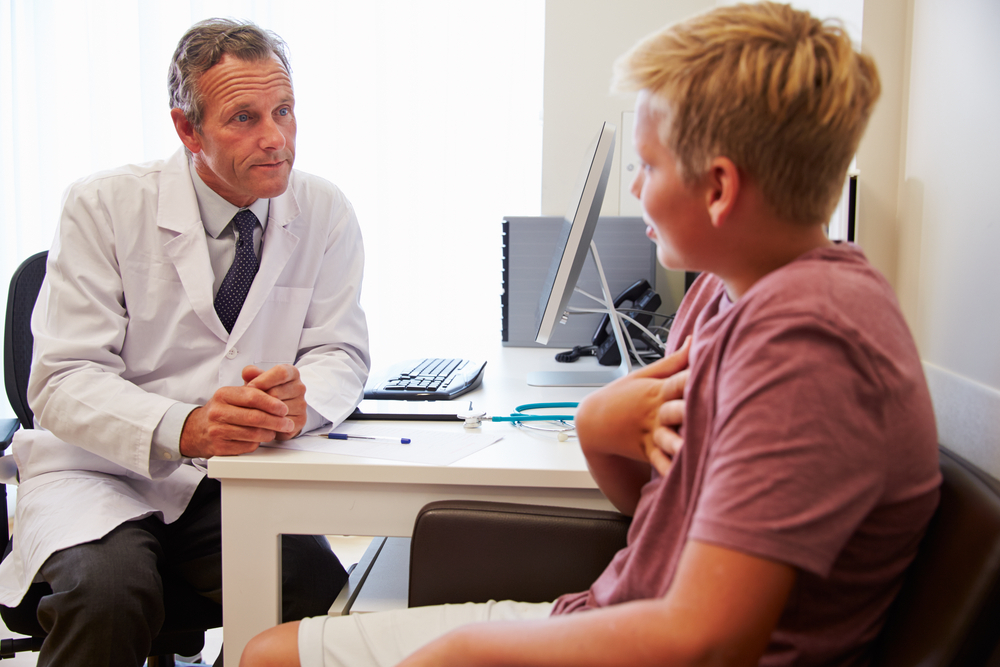
The first doctor you will see about ME will probably be your GP (which stands for General Practitioner) at your local surgery.
Your GP can make a referral to a specialist ME service. Usually, this is a multi-disciplinary team who understand your condition and help you learn how to manage it.
If you aren't able to get to the surgery to see your GP, you can ask for a home visit. The surgery should find a way to support you and monitor your illness when you are in this position.
Occasionally there are doctors who don't understand ME and may believe, wrongly, that it is a mental health problem.
We also know that some doctors don't believe young people when they try and explain their symptoms. If this happens, please get in touch so we can support you with this.
Those who tell us they have a positive experience see doctors who have supported people with ME before, and understand that it is a neurological condition that can also have a big impact on your mental health, relationships and education.
Other doctors may not know very much about ME, but are open-minded and willing to listen to find out more and support you as best they can.
If you are able to see your doctor regularly and build a relationship, this will help when you need their support.
If you develop any new symptoms or health problems it is important to tell your doctor so that they can see whether the symptoms are part of your ME or are caused by something different.
They may be able to see a link which is not obvious to you.
Seeing your doctor regularly also means that:
Not all doctors are taught about ME in medical school and your doctor may be able to learn from you and your experience.
It's frustrating for both of you that there is no test for ME and they cannot provide you with a cure. Show your doctor see that you understand this, but that you need them for support and advice.
Doctors rely on evidence-based medicine, which means that it can be hard for them to do anything that hasn't been scientifically proven.
So, when you ask for something, it may be out of your doctor's hands, especially if your doctor doesn't have prior experience of supporting young people with ME.
When you go to a doctor's appointment with your parent or carer, decide beforehand who is going to do the talking. The message will come across better if you do the talking (if energy allowing).
If your mum, dad or carer is attending for moral support, they should sit a little further back than you, and a little more out of the doctor's eye-line.
If the doctor still talks to them rather than you, your mum, dad or carer should sit back in their seat and avoid eye contact with the doctor.
The doctor is more likely to transfer their attention to the person is sitting directly in front of them i.e. you.
If your parent or carer needs to talk on your behalf, explain this to the doctor yourself at the beginning; there is no need to apologise for this.
The message is more effective if one person speaks without a lot of interruptions from the other.
They should only join in if you invite them to or they believe you are struggling, at which point they should offer their help.
If you are getting upset or feeling pressured by the doctor, either ask your parent/carer to take over or say that you will need to take a break.
In England and Wales, a government organisation called the National Institute of Health and Care Excellence (NICE) publishes evidence-based guidelines for doctors about how to manage many illnesses and health conditions. The October 2021 NICE guideline for ME/CFS offers lots of information and advice about caring for young people with ME.
It says that doctors should consider diagnosing ME if a young person has had a set of specific symptoms for a minimum of four weeks that can't be explained by another conditions, and if these symptoms are having a significant impact.
In Scotland, the government has produced a guideline for doctors called the Scottish Good Practice Statement on ME There are no official guidelines for ME in Northern Ireland, so doctors there often follow the NICE guideline.
Guidelines also make it very clear that:
Because managing severe ME is complicated, the guidelines make it clear that specialist expertise is needed immediately to plan for this. For example, they may need access to use community services.
The guideline also sets a realistic picture of what activities and long-term goals should be like for someone with severe ME (such as "sitting up in bed or brushing hair" as a long-term goal).